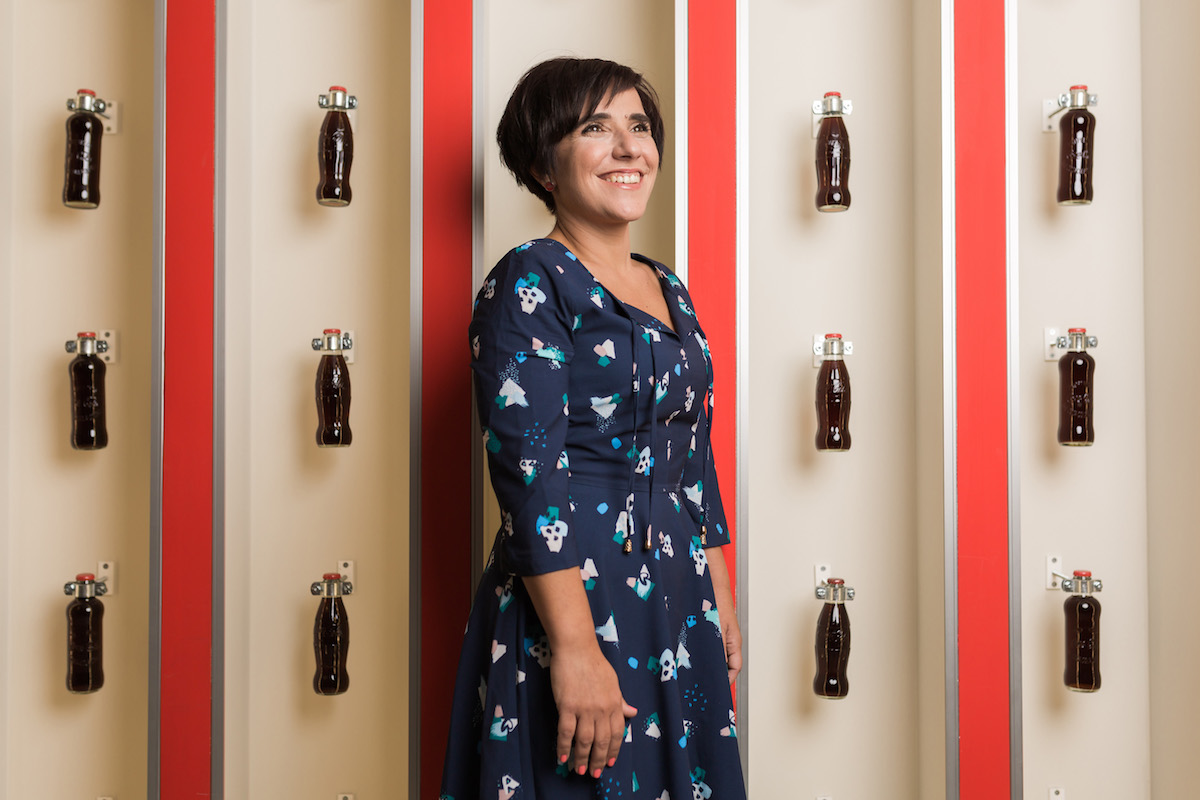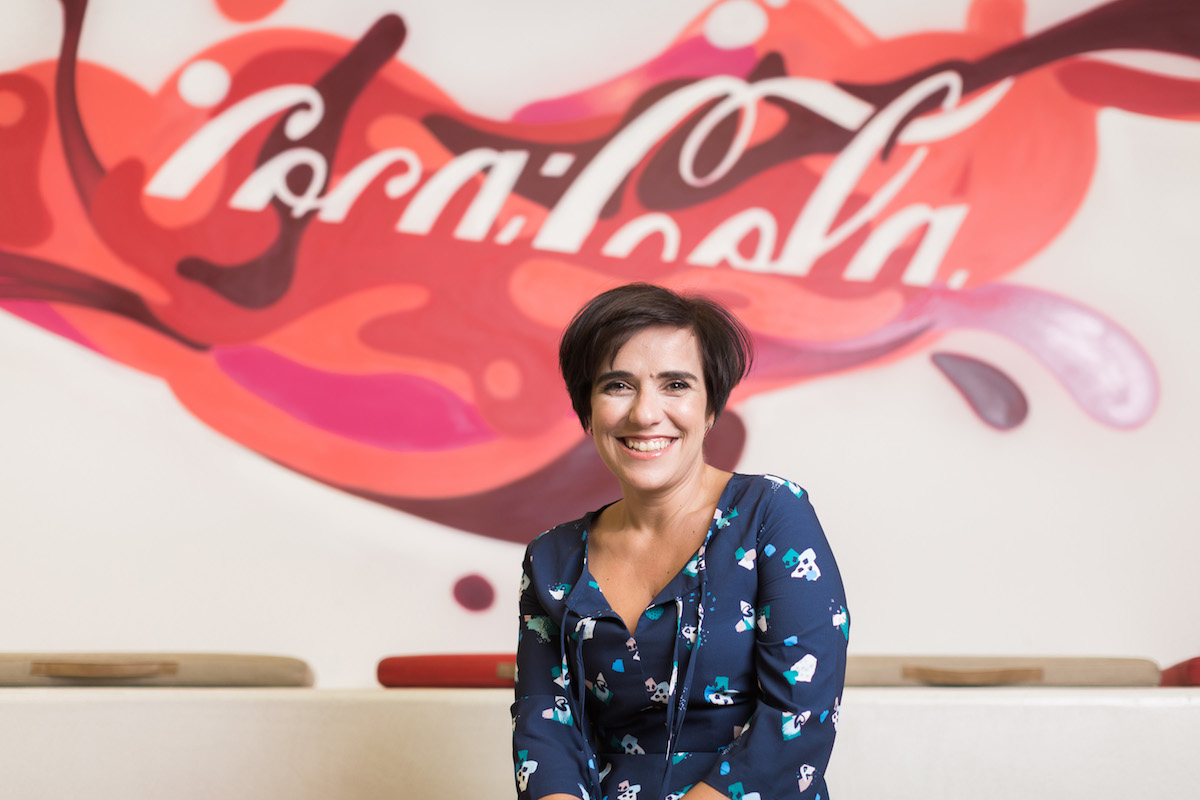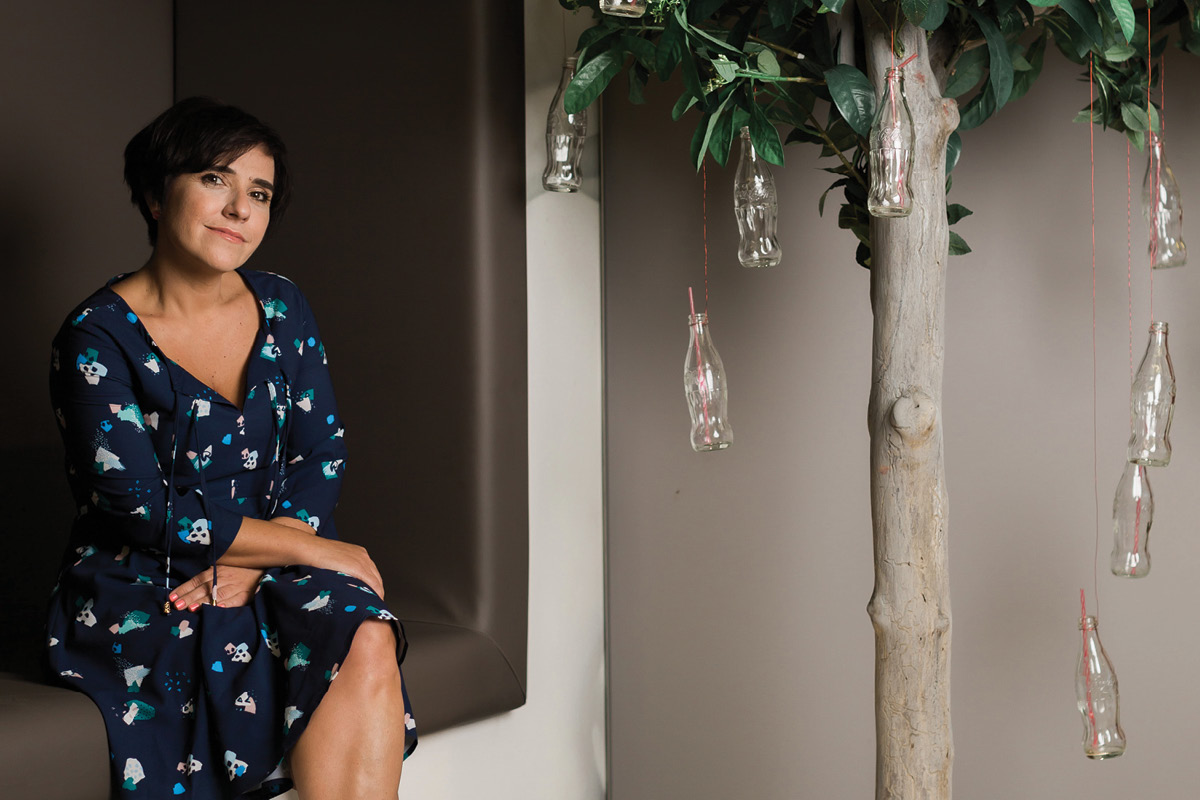Making an impact through collaboration and partnerships has been a key focus for Lilian Nektariou since her appointment as Coca-Cola Hellas Country Manager for Greece, Cyprus and Malta in November last year. Lilian not only implements this approach at an internal company level but she also stresses the importance of this mindset for businesses that want to help to create and maintain sustainable communities, noting that healthy communities in turn result in healthy business results.
These observations carry additional weight when viewed in the context of Greece’s economic struggles following the global financial crisis. Lilian notes that many challenges still exist “especially if you want to make everyday lives of people a bit better.”
In addressing these challenges, she stresses the importance of forward thinking. “When we talk about challenges, we usually talk about the past and the present,” she tells The CEO Magazine.
“Less time is usually left to think about the future, and businesses can’t continue to work in this way. We’re living in times when no single organisation, institution, government or individual can make a difference in isolation. The difference will come from partnerships and collaborations, and from running agendas that are open and inclusive, where everyone can contribute – from a company like Coca-Cola to governments, local municipalities, NGOs and even individual consumers.”
The theme of working together towards a common goal is a priority for Lilian, who describes her role at Coca-Cola as an exciting opportunity to lead a young and dynamic team. She has been with the company since 2006, and has held a variety of positions in the divisions of commercial, business intelligence, strategic planning, consumer strategy and insights.

Now in her current position, she says it’s a fantastic opportunity to showcase the impact of bringing together all the different functions and areas of expertise towards one common goal.
“The vision we have as a team is the connecting thread that unites us. It is not my vision; it is everyone’s vision to offer to consumers in Greece innovative, great-tasting beverages that meet their evolving needs and lifestyles, while at the same time creating value for our partners and the local communities. And this inspires each of us to do our best every day.”
Lilian states that Coca-Cola is evolving to give people around the world more of the drinks they want. “Our focus is on innovation. We are expanding our portfolio to new beverage categories, and offering new brands – while reducing sugar – in line with the changing lifestyles, preferences and consumer trends for less sugar, more functional and natural products. This enables our responsible and sustainable growth.”
Greece is one of Coca-Cola’s pioneering markets in delivering this. Already, five different Coca-Cola choices are available to consumers, four of which are zero calories, while for all major soft drink brands, a low or no-calorie choice is available, including Fanta and Sprite. Over the past 10 years, Coca-Cola in Greece has reduced the average calories in its soft drinks by almost 20%.
Lilian points to the company’s launch of Coca-Cola ‘No Calories, and with Sweetener from Stevia plant’ in Greece and Cyprus, as one of the latest examples of Coca-Cola’s evolving business strategy aimed at building consumer-centric brands, helping people consume less sugar, and offering them more great-tasting, low- and no-calorie beverages for every lifestyle and occasion.
In March, Greece and Cyprus were the first countries to launch the new great-tasting, zero-sugar Coca-Cola beverage, which is produced locally by Coca-Cola’s bottling partner in Greece, Coca-Cola Tria Epsilon. “So far it has been embraced by consumers with a lot of enthusiasm,” Lilian says.
“We worked on the product innovation and launch as a team, together with our bottling partner and with valuable support from Coca-Cola’s research and development team in Atlanta, US. We operated in an efficient and entrepreneurial manner so that we were able to launch it first in Greece and Cyprus, before considering to expand to other markets. When we talk about innovation, it’s about really getting to the heart of what people want, and currently that is less sugar and calories and more great-tasting choices.”
Another strategic focus for Coca-Cola is to take an active role in supporting the communities it has a presence in, particularly in the areas of youth empowerment, responsible water use and conservation, and the refugee crisis.

I don’t see leadership as an individual journey, but rather
as a collective journey.
“One youth empowerment program, of which we are proud to be a partner, is the ReGeneration program, led by the Global Shapers Athens Hub, designed for university graduates interested in employment opportunities and increasing their employability through targeted training and development opportunities. The aim of this program is to equip the next generation with the competencies they need to succeed in a constantly evolving employment landscape.”
Another exciting youth empowerment program that is close to the Coca-Cola DNA is the Think Young Entrepreneurship School, which helps close the gap between the start-up concepts of young Greeks and the creation of viable businesses.
Coca-Cola knows well the potential power of one imaginative business idea. After all, 131 years ago that idea was Coca-Cola. And today, the company is committed to inspiring others to follow their entrepreneurial aspirations. “It’s an exciting program,” Lilian says.
“For the past three years, we’ve been supporting young people in Greece with entrepreneurial know-how and subject-matter expertise, including from our own people in the company, such as in social media and marketing, to help them start their own businesses. Now is a time when the country’s economy can become stronger through entrepreneurship – Greeks have resourcefulness and an entrepreneurial mentality in their DNA. Thus, it’s an important area of growth we can support further.”
Lilian believes it’s important to look beyond the numbers and to invest in people, which in turn adds significant value to business. Assessing her role as a leader within Coca-Cola, she highlights once again the importance of collaboration.
“I don’t see leadership as an individual journey, but rather as a collective journey,” she states. “In order to create impact, it’s important to have a shared vision. “It’s only when a vision comes together as a joint effort that things begin to happen. As a leader, this is how I view myself. This type of leadership style offers me an excellent opportunity to get to know myself and to get to know others as we travel together on this journey.”



